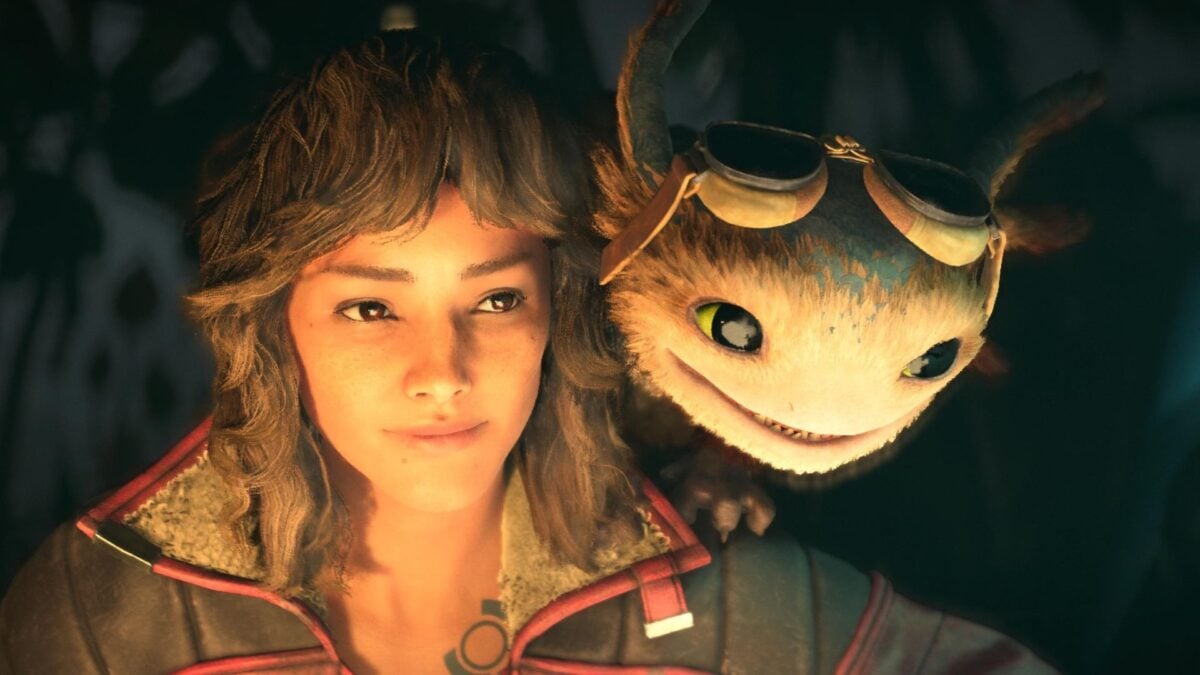The Switch 2’s game key cards have proven a source of extreme consternation since the launch of Nintendo’s latest console. Physical carts in plastic boxes that don’t actually contain the game at all, making a mockery of game preservation and the entire purpose of owning a physical copy of your game. The reason for their use is usually presumed to be cost, given how expensive a 64GB Switch card is for a publisher (apparently $23 each!), and that Nintendo right now is not offering a smaller option to publishers. However, in the case of Ubisoft’s Star Wars Outlaws it seems it’s a due to a more significant weakness of the Switch 2.
So far, tech geeks are super-impressed with how Ubisoft has managed to get such a large, complex open-world game working on the handheld console. As much of a step up from the original Switch as the Switch 2 might be, it’s still not exactly cutting-edge technology, and the requirements to be able to run on a handheld device can be restrictive. So great work by all involved! However, Outlaws has become yet another entry in the very long list of games releasing with nothing but a game key on an otherwise blank cart, and understandably people are narked about spending $60 to buy a pile of empty plastic.
More than anything else, it’s the knowledge that Nintendo absolutely will one day switch off the eStore that processes the keys to allow the games to be downloaded. As with every previous generation of digital store, the servers will go away, and the purchased games will disappear into the ether. This leaves people either looking at emulation (which Nintendo deeply loathes), or re-buying the same game again when it’s released as a “Classic” download on the newer device (where, hilariously, Nintendo makes it available via emulation). This all enormously sucks. So yes, one day your copy of Star Wars Outlaws Switch 2 will be nothing but a very bad-tasting SD card.
Except, it seems in this particular instance this isn’t an act of cost-cutting on a premium-price game. (For whatever reason, Nintendo has only offered 64GB cards for the Switch 2, driving up production costs and encouraging many to resort to key cards instead.) However, according to Rob Bantin, the audio architect on Outlaws‘ engine Snowdrop, it’s because the streaming speeds between the Switch 2 carts and the console just aren’t fast enough to run the game properly. And that seems like it could be a big deal.
Digital Foundry‘s John Linneman posted on BlueSky to report how impressed he was with the port, reposting VCG’s video about the tech, adding that DF has its own video on the way. Others replied, one person pointing out that the game is somehow only 20.2GB, but another expressing disdain that it’s a key card. After a bit of back and forth, Rob Bantin entered the conversation and revealed all.
“Snowdrop relies heavily on disk streaming for its open world environments,” said Bantin. “And we found the Switch 2 cards simply didn’t give the performance we needed at the quality target we were going for.” In other words, the game needs to be full installed on the console’s SSD drive to be able to run properly. The audio architect continued, “I don’t recall the cost of the cards ever entering the discussion – probably because it was moot.”
It’s hard to know how big of an issue this is going to be for the Switch 2 over the next seven or eight years of its likely life, but given a 2024 port can’t run off the card because of speed limitations, other larger, open-world games could share some similar issues. We’re talking about games releasing in 2030 after all. However, Bantin offers some optimism. “I think if we designed a game for Switch 2 from the ground up it might have been different,” he added. “As it was, we’d build [sic] a game around the SSDs of the initial target platforms, and then the Switch 2 came along a while later. In this case I think our leadership made the right call.”
We’re stepping beyond my nerdy understanding here, but from my research the Switch 2 cards are limited to 400MB/s transfer rates, while the Switch 2’s SSD can offer close to 900MB/s. So that’s a obviously a significant difference. However, it’s crucial to note that Cyberpunk 2077 runs from its game card at 400MB/s, and there are few complaints there. So if games are intentionally designed for the Switch 2’s card limitations, this might not be a frequent issue? But, again, it does mean that releasing a cross-platform game could require a huge amount of heavy lifting to make a version that runs from a card, when the PlayStation, Xbox and PC versions will all be installing to SSD. (Why Nintendo doesn’t allow SSD installation from game cards is another massive question, and seemingly a very obvious solution.) And, let’s not forget, the Switch 2 will be overlapping the second half of its life with the inevitably PlayStation 6 and Xbox Series 2.
It’s all a pretty pickle for developers looking to release big games on the Switch 2, without pissing off audiences and rendering their games ethereal.
